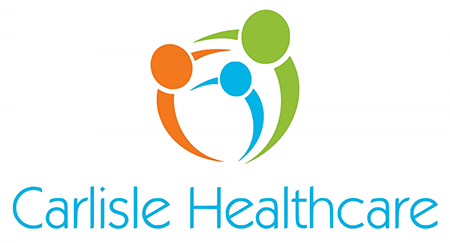Opening Times | NHS App | Contact Us
CQC Rating Good
Self Care
Think Chemist. Think NHS
Following on from NHS England launching a public consultation on reducing prescribing of over-the-counter medicines for 33 minor, short-term health concerns, we would like to encourage our patient community to take an individual responsibility to look after themselves through self-managing any minor ailments. By doing so, we are asking our patients to play an active role in their own health and wellbeing, ensuring that when they only need items now and again, it is better to buy over the counter medicine for pennies instead of making an appointment with their GP.
We understand many of our patients have regular medicines on repeat prescription and it can be tempting to order in bulk items each time on the basis of ‘just in case’, however medicine wastage could be dramatically reduced by doing a quick check of your medicine cabinet.
Each prescription costs around £8 in administration fees to process and dispense out to patients, plus the actual cost of the drug to the NHS and some medications can cost significantly more to prescribe than they would to buy over the counter.
An alternative way for patients to self-care would be to visit their local chemist for clinical advice as every pharmacist trains for five years in the use of medicines before they qualify and is also trained in managing minor illnesses and providing health and wellbeing advice to help people stay well. Community pharmacists offer a more convenient, quicker way to obtain clinical advice on minor health concerns, and consult with patients in a private consultation room with no need for an appointment. Rest assured, if the pharmacist considers the condition to be serious and warrants further medical help, they will signpost to the right medical care needed.
Around £300m each year is what wasted prescription medicines cost the NHS, with a further cost of £136m a year being spent on prescriptions for medicines that can be bought over the counter. These large sums of expenditure could effectively be used to help the NHS give priority to treatments for people with more serious conditions and frontline care.
The NHS spends each year:
- £70m on paracetamol – enough to fund around 3550 community nurses
- £3m on athletes foot and other fungal infections – enough to fund 810 hip ops
- £2.8m on diarrhoea – enough to fund 2912 cataract operations
The new over the counter medicines guidance will curb the routine prescribing of products that are for:
- A self-limiting condition, which does not require any medical advice or treatment as it will clear up on its own, such as sore throats, coughs and colds
- A condition that is suitable for self-care, which can be treated with items that can easily be purchased over the counter from a pharmacy, such as indigestion, mouth ulcers and warts and verrucae.
NHS England chief executive Simon Stevens said: “Across the NHS our aim is to: ‘Think like a patient, act like a taxpayer’. The NHS is probably the most efficient health service in the world, but we’re determined to keep pushing further. Every pound we save from cutting waste is another pound we can then invest in better A&E care, new cancer treatments and much better mental health services.”
Over the counter medicines can be purchased at a variety of places such as your local supermarket, high street store, corner shop and of course, chemist. The list of conditions treatable by over the counter medicines is lengthy, from thrush to conjunctivitis, verrucae to ringworm. We strongly advise our patients keep a well-stocked medicine cabinet, full of useful medicines used to treat common conditions and basic first aid items.
Conditions treatable with over the counter medicine:
- Acute sore throat
- Cradle cap
- Dry eyes / sore tired eyes
- Haemorrhoids
- Infant colic
- Infrequent migraine
- Minor burns and scalds
- Mild irritant dermatitis
- Mouth ulcers
- Sun protection
- Travel sickness
- Warts & Verrucae
- Conjuctivitis
- Dandruff
- Earwax
- Headlice
- Infrequent cold sores
- Insect bites & stings
- Mild Cystitis
- Mild-moderates hay fever
- Nappy rash
- Prevention of tooth decay
- Oral Thrush
- Cough, colds & Nasal Congestion
- Diarroea (adults)
- Excessive Sweating
- Indigestion & Heartburn
- Infrequent Constipation
- Mild Acne
- Mild dry skin
- Minor pain discomfort
- Ringworm
- Teething
If your symptoms persist, worsen or show no signs of improvement after the advised period of time expected for a condition to last, then we advise our patients to:
- Go back to the pharmacy for further advice
- Call NHS111
- Contact us, Carlisle Healthcare, your GP surgery
INDEX - Self-Help-Centre
Self-Help Information
- Online Consultation
- Health A - Z
- Live Well
- Self Referrals
- Carers
- Child Health
- Community Groups
- Depression, Anxiety and Stress
- Drugs and Alcohol
- Elderly Care
- Fitness
- In Times of Bereavement
- Maternity
- Memory
- Pain Management
- Parkrun Practice
- Physiotherapy
- Self Care
- Sexual Health
- Stop Smoking
- Weight Management
Health Checks
We use cookies to help provide you with the best possible online experience.
By using this site, you agree that we may store and access cookies on your device. Cookie policy.
Cookie settings.
Functional Cookies
Functional Cookies are enabled by default at all times so that we can save your preferences for cookie settings and ensure site works and delivers best experience.
3rd Party Cookies
This website uses Google Analytics to collect anonymous information such as the number of visitors to the site, and the most popular pages.
Keeping this cookie enabled helps us to improve our website.
